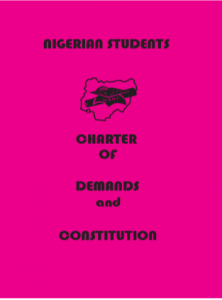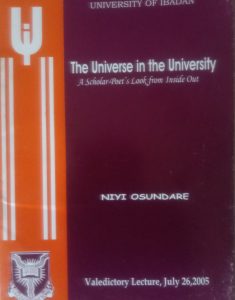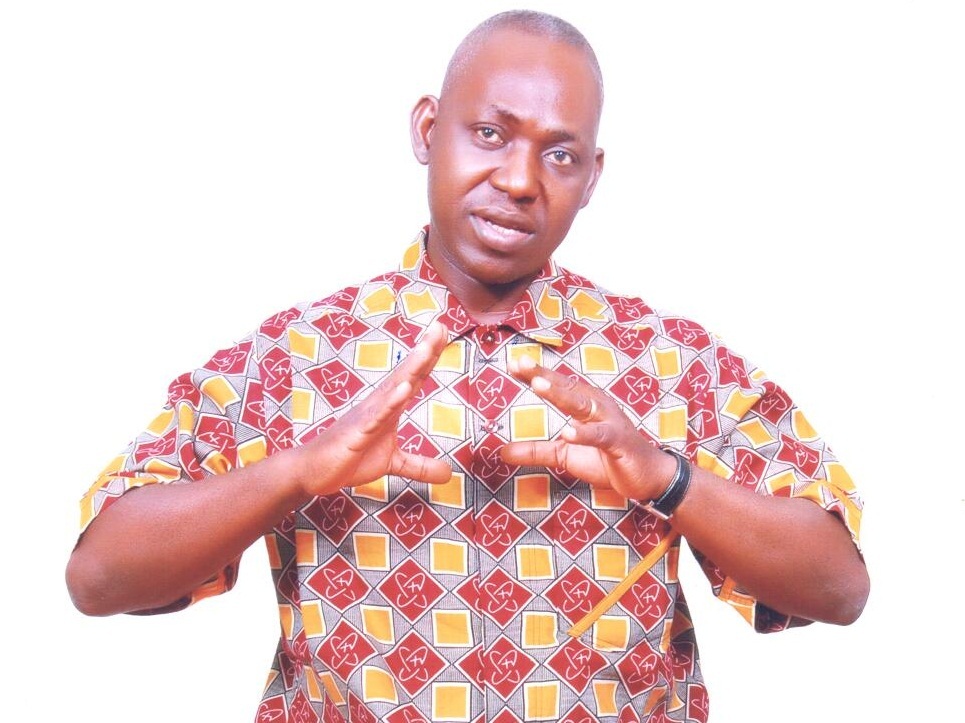There would be absolutely no good reason why UK based Comrade Columbus Chilaka Anyanwu should not share the byline for this piece or even be given the credit for it. The title, for instance, is almost his own. His gratitude to Comrade John Odah consists in remembering and celebrating John’s birthday, for example. And he can remind whoever cares that the birthday is at hand, many weeks ahead of it. It is not that he is out of touch with the state of siege that makes celebrating a birthday an unaffordable luxury for many in Nigeria at this point. It is simply that he is not in the mood to forgo demonstrating gratitude for past assistance to Comrade John in any little ways possible as and when due.
In the end, however, it is not only to Comrade Anyanwu’s subtle pressure that this piece is a product of. It is also a celebration of the achievement of one of his daughters who just obtained three straight ‘A’ in her A Level examination and has shot her way into the London School of Economics. Hers must be a classic of the phenomenon Dr. Martin Uhomoibhi, a former Permanent Secretary of the Nigerian Ministry of Foreign Affairs, calls the Nigerian DNA. There is no populism in that characterization by Dr. Uhomoibhi, a University of Ibadan as well as Oxford University Historian and a diplomat to boot and thus someone who should know about a uniquely Nigerian way of shooting up and illuminating whatever environment.
 But, what do we write about Comrade John Odah on this birthday then? Can it be more than restating the point that his birthday is both personal as well as political? That is, even his birthday cannot be appreciated outside his entanglement in the struggle for popular democracy spearheaded by his generation between the 1980s and the mid-1990s. The contention here is that struggle in question has no equal in the annals of Nigerian history because the members of that generation made so many vital statements with it. One, they spotted quite early that Nigeria was heading in the wrong direction and that disaster would be the outcome if care was not taken. If they are not clapping hands for themselves for that prediction, it can only be because there is no winner in the disaster that has eventually enveloped all of us.
But, what do we write about Comrade John Odah on this birthday then? Can it be more than restating the point that his birthday is both personal as well as political? That is, even his birthday cannot be appreciated outside his entanglement in the struggle for popular democracy spearheaded by his generation between the 1980s and the mid-1990s. The contention here is that struggle in question has no equal in the annals of Nigerian history because the members of that generation made so many vital statements with it. One, they spotted quite early that Nigeria was heading in the wrong direction and that disaster would be the outcome if care was not taken. If they are not clapping hands for themselves for that prediction, it can only be because there is no winner in the disaster that has eventually enveloped all of us.
Two, they didn’t just predict disaster ahead, they also produced a document on the alternative way to go. The document, otherwise called the NANS Charter ought to be a compulsory reading material for all those flying up and down today with incompetent concepts in framing the Nigerian crisis. Three, they didn’t just spot the dangers or document the alternative way out of disaster, they organised a pan-Nigerian platform to operationalize their critique of the social order. There is thus nothing that compares with that generational statement.

Still the best documentation of what has happened to the university system in Nigeria
To the three points above may be added the claim that one of the reasons why Nigeria remains one country today is that generation in that the way they internalized the country rules out a smaller Nigeria. While it must be admitted that quite a number of the members of that generation have transformed into grotesque signifiers of a glorious past – provable by the ideological childishness of most postings emanating from them on Facebook in particular- there is an orientation to Nigeria that is common among them. The point in that is how that collective is still serving an early Warning to Nigeria: the Nigerianism they acquired from universities that were not federal in name but also in the diversity of students is being challenged by many universities today that knows nothing about diversity in the composition of both the studentry and the staffing. There are many universities in Nigeria today which are dominated by a single religious denomination, not to talk of ethnic and cultural homogeneity. How would Nigeria be at the time a Commissioner of Police or a Brigade Commander would be from one of these universities, without school or class mates from any other ethnic, regional or religious other?
For instance, this piece can be a good fit piece for the birthday of any of the members of that generation, irrespective of where he or she comes from in Nigeria. Can this still be the situation in another 20 years from now, with the ownership and control structure of the universities today? Is it that the national institutions such as the military or federal bureaucracy will infuse this national/patriotic orientation in the products from clan/kindred universities? Or is it the case we are hoping that this is achievable through the hated NUC courses such as ‘Nigerian People and Culture’? Those courses have absolutely no use for anybody because the students hate them passionately and the classes are so large that no teaching goes on there beyond fulfilling all righteousness. Yet, Nigeria loves deceiving itself by keeping such courses. In any case, the universities have been completely destroyed.
Against the foregoing, Comrade Anyanwu is perhaps right to insist that there should be a piece on John Odah’s birthday: if desperadoes, mercenaries and quacks can be all over the place celebrating their myopia, why shouldn’t those who have privileged the society ever since be celebrated as and when due? In other words, failing to politicise certain birthdays is robbing the poor masses of a crucial site of struggle.
That though is provided the Comrade John Odahs of this world in wherever they might be strive to add value to what they accomplished between 1980s and 1995, first at the level of theory and then at the level of the kind of practices by which accountability of power in Nigeria can be phenomenally enhanced. The struggle must be advanced to problematizing digital capitalism, with particular reference to deploying immanent critique to combat the very insensitive and shameless Nigerian power elite trooping to Europe, North America, Asia and the Middle East for everything.
Happy birthday to all those covered by the generational statement to which this is a tribute, using John Odah’s birthday as an entry point.




























